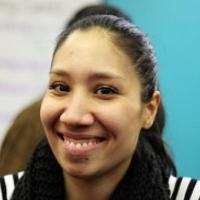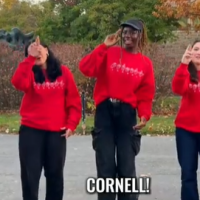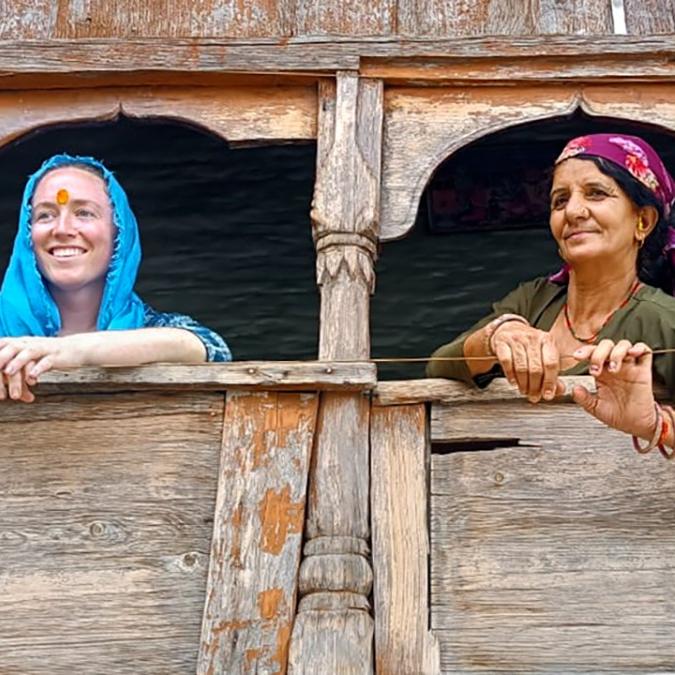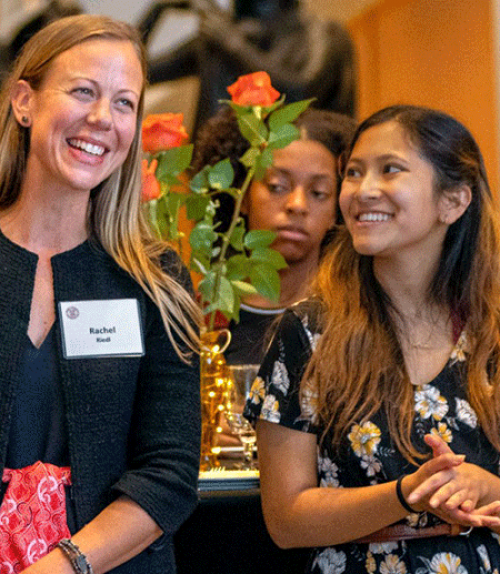Last year, Jenna Robinson ’19 was a communications major and student technical assistant at the Mario Einaudi Center for International Studies. Now she’s an associate product marketing manager at YouTube in San Francisco.
Sofia Keane ’19 was an industrial and labor relations major while working at Einaudi’s front desk, on the first floor of Uris Hall, for three academic years. Now she designs diversity training programs as a human resources coordinator at Sotheby’s auction house in New York City.
With eight regional and thematic programs, the Einaudi Center supports multidisciplinary research, collaborations and teaching about the world’s people and places. But the center’s influence on Cornell campus life doesn’t stop with the students enrolled in Einaudi’s minors, or supported by its grants. Each semester, dozens of student workers call Einaudi their office.
With the coronavirus pandemic, the Einaudi Center’s activities have transitioned to virtual collaboration, with 25 students continuing their roles remotely from campus dorm rooms and across the country. Whether they’re designing graphics or managing grant data, Zoom meetings and emailed task assignments have kept more than half of Einaudi’s student workers employed and connected.
But in normal times, student workers staff the Einaudi Center’s reception desks, rotate through workstations in the hallways and program offices, and support Einaudi events and staff projects. The positions – often with considerable responsibility and campus exposure – launch many students into global careers in international relations, academia, international development, technology, business and beyond.
“One of the highlights of my day is walking through the center and seeing the energy and international sensibility created by our wonderfully diverse group of students,” said Nishi Dhupa, Einaudi’s executive director. “Our staff takes so much pride in mentoring students and giving them real-world experience to prepare them for their future.”
Of the 42 students employed this year, at least 30% are international, from countries including Nepal, Indonesia and Mongolia. Many U.S. students – often with an interest in international studies, languages or education abroad – are part of the federal work study program. With a mix of graduate and undergraduate students from a range of majors and minors, the diversity in job areas matches the diversity of the students themselves.
Working at Einaudi lets student workers, regardless of their majors, explore Cornell’s international studies resources.
Rebecca Clark ’20, an Asian studies major who wants to become an East Asian art curator, has worked at the center since her sophomore summer, starting at the front desk. She now works with the Fulbright administrator as the main point of contact for scheduling and queries from students as they prepare to apply for Fulbright grants.
“As a student worker at Einaudi,” Clark said, “you’re fully brought into the fold as an equal co-worker, yet faculty and staff also understand that we’re students who are still learning.”
Nisa Burns ’21, a linguistics major who’s minoring in Southeast Asian studies, landed a job with the Einaudi Center’s Southeast Asia Program. That led to a three-week trip to Myanmar in January 2019 with another undergraduate, Evelyn Shan ’19, to pilot a winter session course on gender in Myanmar.
As student workers graduate and leave the Einaudi community, they remember their time in Uris Hall fondly.
Robinson said her time at the Einaudi Center has served her well at YouTube.
“My job at Einaudi kept me grounded and gave me a sense of structure throughout my time at Cornell,” Robinson said. “The autonomy my supervisor gave me as a student worker enabled me to figure things out on my own, and I’ve carried that into my job.”
Priya Pradhan ’22 is a writing intern at the Mario Einaudi Center for International Studies.






